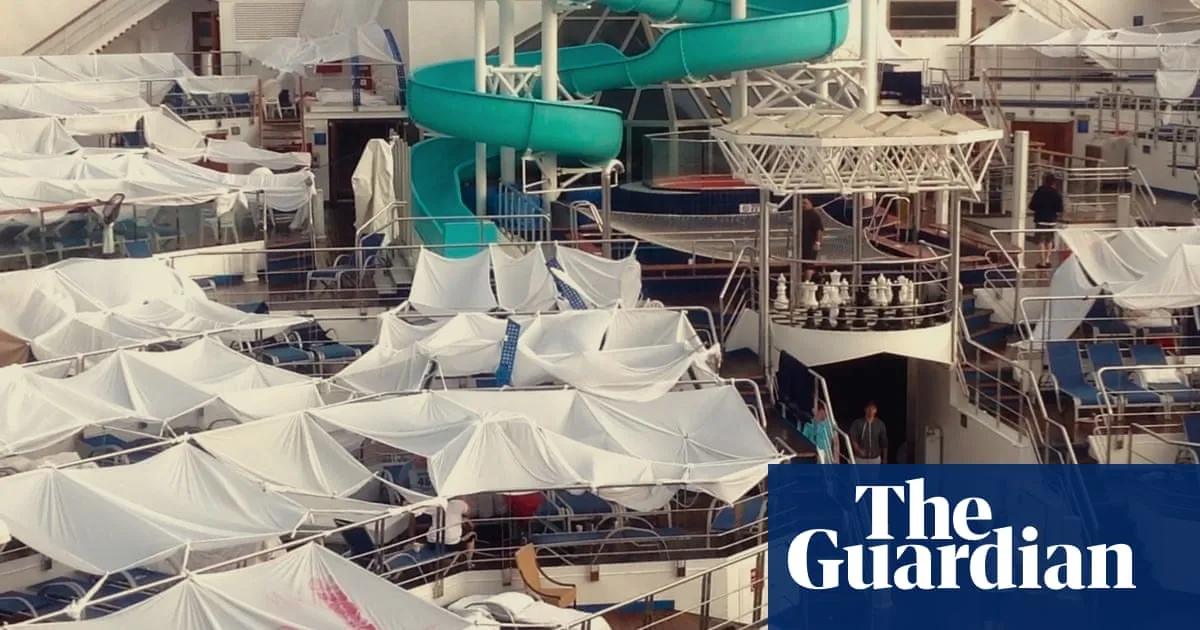
The captivating yet shocking saga of the "Poop Cruise" resembles a modern-day version of Gilligan’s Island, unfolding in a manner that seems almost too outrageous to be true. For those unfamiliar with the events that transpired in 2013, a two-day voyage from Galveston, Texas, to Cozumel, Mexico turned disastrous when a fire broke out in the engine room of the Carnival Triumph. This incident left approximately 4,100 passengers and crew stranded in the Gulf of Mexico. The fire severely damaged the ship’s electrical systems, crippling essential amenities such as wifi and, most alarmingly, the toilets, which overflowed into cabins and hallways.
After three harrowing days adrift, the Triumph was towed to Mobile, Alabama. The passengers, who had endured what seemed like a potential disaster of Titanic proportions, eventually celebrated their return to solid ground, transforming their ordeal into a humorous anecdote rather than a tragedy.
Bafta-nominated director James Ross has taken the outrageous tale of the "Poop Cruise" and crafted a compelling documentary titled Trainwreck: Poop Cruise. This film follows the trajectory of Netflix’s acclaimed Trainwreck series, which has previously explored the fallout from the scandal surrounding Toronto mayor Rob Ford and the Astroworld festival tragedy. Ross's documentary masterfully navigates the balance between the comedic and the serious while reconstructing the bewildering events of the cruise in a comprehensive manner.
From the outset, viewers are introduced to a diverse group of Triumph survivors, including a bachelorette party eager to let loose, a nervous fiancé meeting his future father-in-law for the first time, and a divorced dad hoping to enjoy a vacation with his teenage daughter. Their carefree attitudes aboard the cruise, particularly the bachelorette party skipping the safety briefing to head straight for the bar, starkly contrast with the perspectives of the crew members, who worked grueling 70-hour weeks to maintain the atmosphere of fun.
Ross aptly describes the situation aboard the Triumph as a microcosm of hedonism. “There’s this huge extreme of people on one end who are there just to really enjoy themselves and the crew who are there to facilitate that,” he explains. However, the documentary also emphasizes that the catastrophic events affected not only the passengers but the dedicated crew members as well.
By utilizing reenactments, Ross transports audiences back to the Triumph, showcasing interviews set against kitschy dining halls and bars reminiscent of the actual ship. A particularly poignant moment occurs during an interview with a nervous passenger, Devin Marble, when a power outage occurs – a striking parallel to the real-life chaos aboard the ship.
One of the documentary's standout features is its effective use of scene reenactments, particularly in portraying passengers' anecdotes. Viewers witness the humorous yet desperate attempts of a bachelorette party member navigating a pitch-black cabin bathroom, adding a touch of levity to the dire circumstances. Ross emphasizes that while the reenactments should not feel overly realistic, they serve to immerse viewers in the surreal environment of the Triumph.
With access to hundreds of hours of passenger-generated footage, Ross meticulously pieced together a narrative that captures the essence of a civilization in crisis. The stark transition from carefree cannonballing into the pool to creating makeshift tent cities on deck highlights the rapid decline of order aboard the ship.
The documentary skillfully builds tension as it recounts a critical turning point when the Triumph, having drifted beyond the reach of a Mexican rescue, encounters its sister ship, the Carnival Legend. While the passengers initially believe they are saved, reality sets in as they realize the impossibility of safely transferring over 3,000 passengers to the Legend. However, the Triumph crew manages to secure essential supplies from the Legend, and one passenger in need of medical attention is successfully evacuated.
Awkwardly, the passengers aboard the Legend, oblivious to the dire situation of the Triumph, treat the stranded ship as an amusing spectacle before returning to their festivities. In a pivotal moment, Triumph passengers discover they can access the Legend's working wifi, leading to frantic attempts to contact loved ones. It is through these desperate mayday calls that the outside world learns of the unfolding crisis.
Prior to these calls, Carnival’s public relations strategy involved minimal transparency regarding the fire, which initially kept the media at bay. However, as the reality of the situation became evident, major news outlets, including CNN, shifted their focus to the unfolding drama aboard the Triumph, leading to a media frenzy as the ship neared shore.
Despite the chaos, the aftermath of the "Poop Cruise" raises questions regarding accountability. Carnival faced minimal repercussions, and the Triumph was ultimately relaunched under a new name, Sunrise, following a substantial $115 million cleanup effort. This aspect of the story could dissuade potential cruise-goers from ever stepping foot on another ship.
While some may find the "Poop Cruise" narrative difficult to digest due to its claustrophobic implications and scatological themes, Ross’s documentary transcends mere sensationalism. It serves as a vibrant allegory for the fragility of modern existence and the remarkable resilience of the human spirit. “People were saying this was the best cruise they’d ever been on because the crew worked so hard,” Ross notes, underscoring the unexpected camaraderie that emerged from adversity. “It was a terrible experience that taught valuable lessons, but it was also one of those ‘holy fuck’ stories that we can all learn from.”